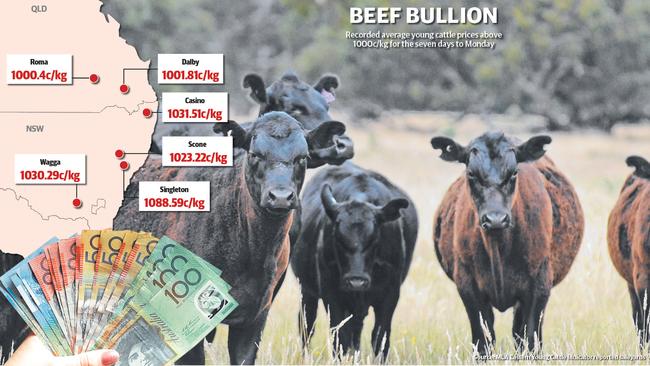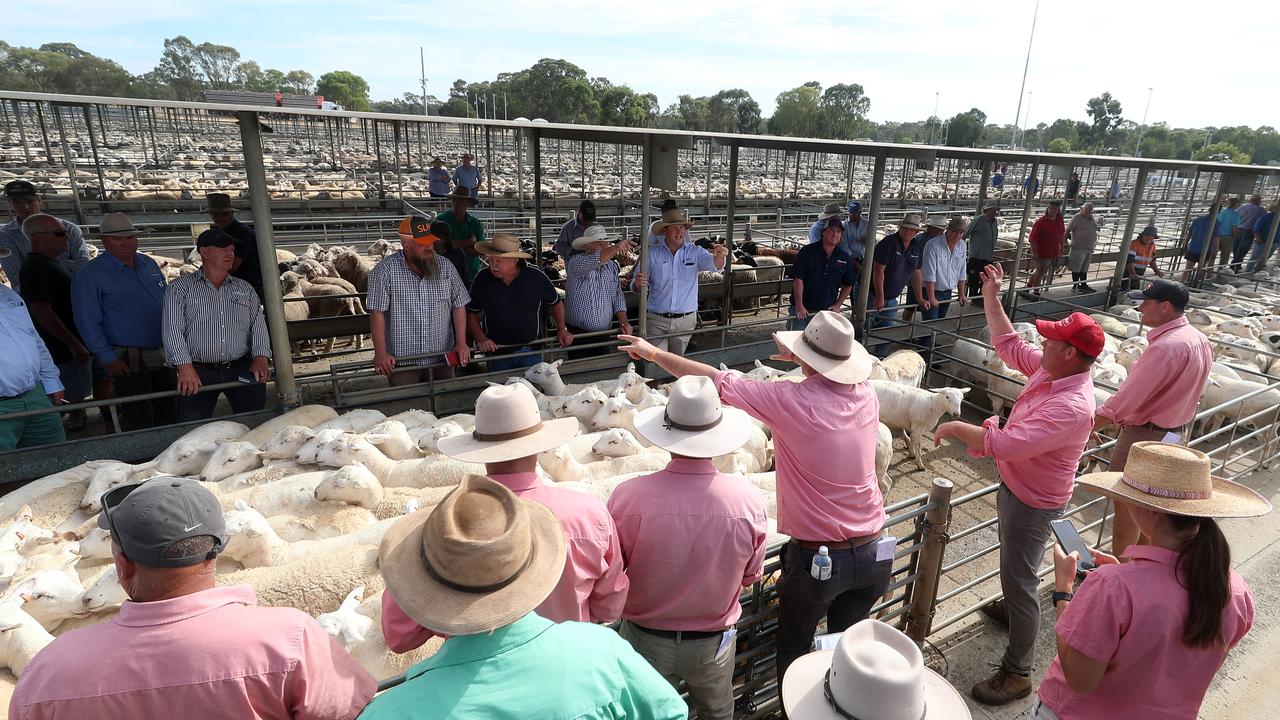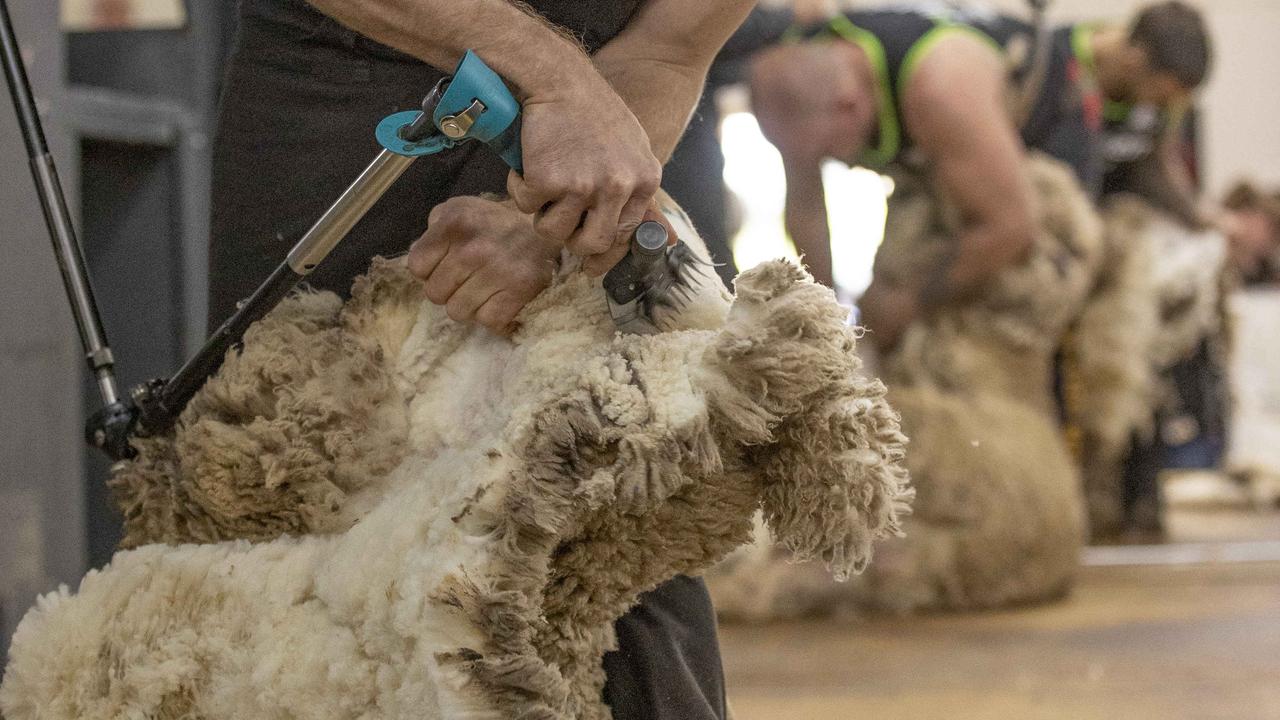Young cattle prices: Record-breaking EYCI brings warnings market is overheating
Indicator prices for young cattle have exceeded the fabled 1000/kg mark for the first time — but some are cautioning the market is unsustainable.

Returns for young cattle have smashed through the $10/kg psychological barrier, reaching 1003.44c/kg on Thursday to achieve a historic milestone.
The skywards charge of young prices has continued after the Eastern States Young Cattle Indicator hit a then-record average of 988.11c/kg last week.
This followed a blistering run that saw the Eastern States Young Cattle Indicator gallop up to 960c/kg the week before, recording a rally unlike anything previously seen in its quarter of a century history.
But on Monday, it had eased back from its earlier 988c/kg peak to 982c/kg, as some in the industry cautioned that prices were overheated.
Wagga Wagga, NSW, prime cattle sale this week was one of the saleyards which reported an average of over $10/kg for young cattle, with the seven-day rolling average price of 1030c/kg carcass weight.
Nutrien Wagga Wagga, NSW, livestock agent James Croker said young cattle prices were “phenomenal” and sellers were reaping the benefits.
However, Mr Croker said there was a lot of unknowns and no-one could pinpoint when the “price check” would be.
“In January we were saying prices were phenomenal and how would people make a margin, it’s hard to know where the top is, but you’d think we are there.”
In other records last week, Tamworth in NSW saw a pen of Pregnancy Tested in Calf Angus cows with calves recorded of $4325.
And in Victoria Ballarat’s store sale was also white hot with agents reporting light steer weaners in the 200-300kg size bracket selling from $1450 to $1850, averaging over 650c/kg liveweight.
Thomas Elder Markets commodity market insights manager Matt Dalgleish said he had thought there would be significant resistance at 950-970c/kg.
“We won’t know the top until we have hindsight, but it’s definitely not a market that’s sustainable at these levels,” he said. “It’s not a good long-term situation. It’s great for producers who have animals to sell, but the market can’t survive at these levels long-term.”
Mr Dalgleish said one surprise has been the rebound in the heavy steer price which gave buyers confidence to spend on young cattle.
But he warns if producers are buying young cattle at 200-400kg now, when it is time to turn them off in six to 12 months, it’s unlikely heavy steers will be still making around 400c/kg.
“It’s a risky strategy if you ask me,” he said.
MORE


